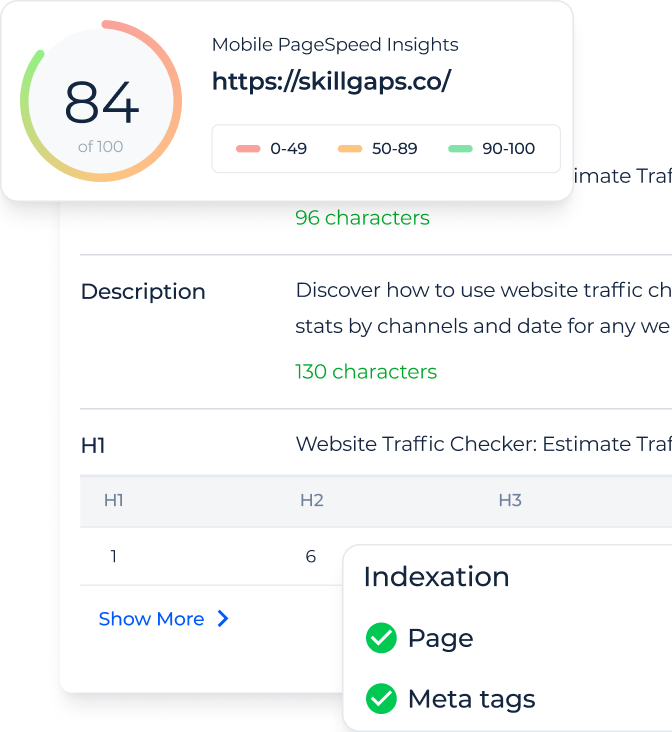What is an External Linking Checker?
The external link analyzer is a professionally crafted tool that lets you identify and track all outgoing hyperlinks from any specific page on your website, covering each URL. Moreover, it assists in identifying and rectifying any issues related to external outbound hyperlinks on your website. Besides, this tool also helps you develop and implement an effective outbound link strategy.
How the tool can help you?
Link Quality and Quantity Analysis: Evaluate the quantity and quality of external sites linked to your website, distinguishing between high-quality and low-quality destinations.
Spam and Relevance Check: Analyze the content relevance of outbound links to ensure they are not perceived as spam and contribute positively to your site’s authority.
Hyperlink Weight Management: Helps maintain a balanced profile of inbound and outbound URLs, critical for page rank and search engine optimization (SEO).
Key Features of the tool
Unified Dashboard: Provides a centralized platform where users can access and analyze all SEO data and metrics. This dashboard allows for easy monitoring and management of various SEO aspects of a website, including traffic, keyword rankings, and site health.
User-friendly Interface: Designed with simplicity in mind, the interface of Sitechecker is intuitive, making it accessible even for those who are not SEO experts. This ensures that users can navigate and utilize the toolset efficiently.
Complete SEO Toolset: Sitechecker includes a comprehensive set of SEO tools covering various aspects like site auditing, rank tracking, backlink checking, and more. This toolset provides detailed insights and actionable recommendations to improve website performance in search engine results.
How to Use the Outgoing Links Checker Tool?
Suppose you want to examine your entire website and audit each URL individually to check for external links. Let’s go through the external link checker tool step by step.
The scan results for a single page will be displayed on the screen immediately. To check the domain and submit all external links leading to your site, take advantage of the free trial period offered.
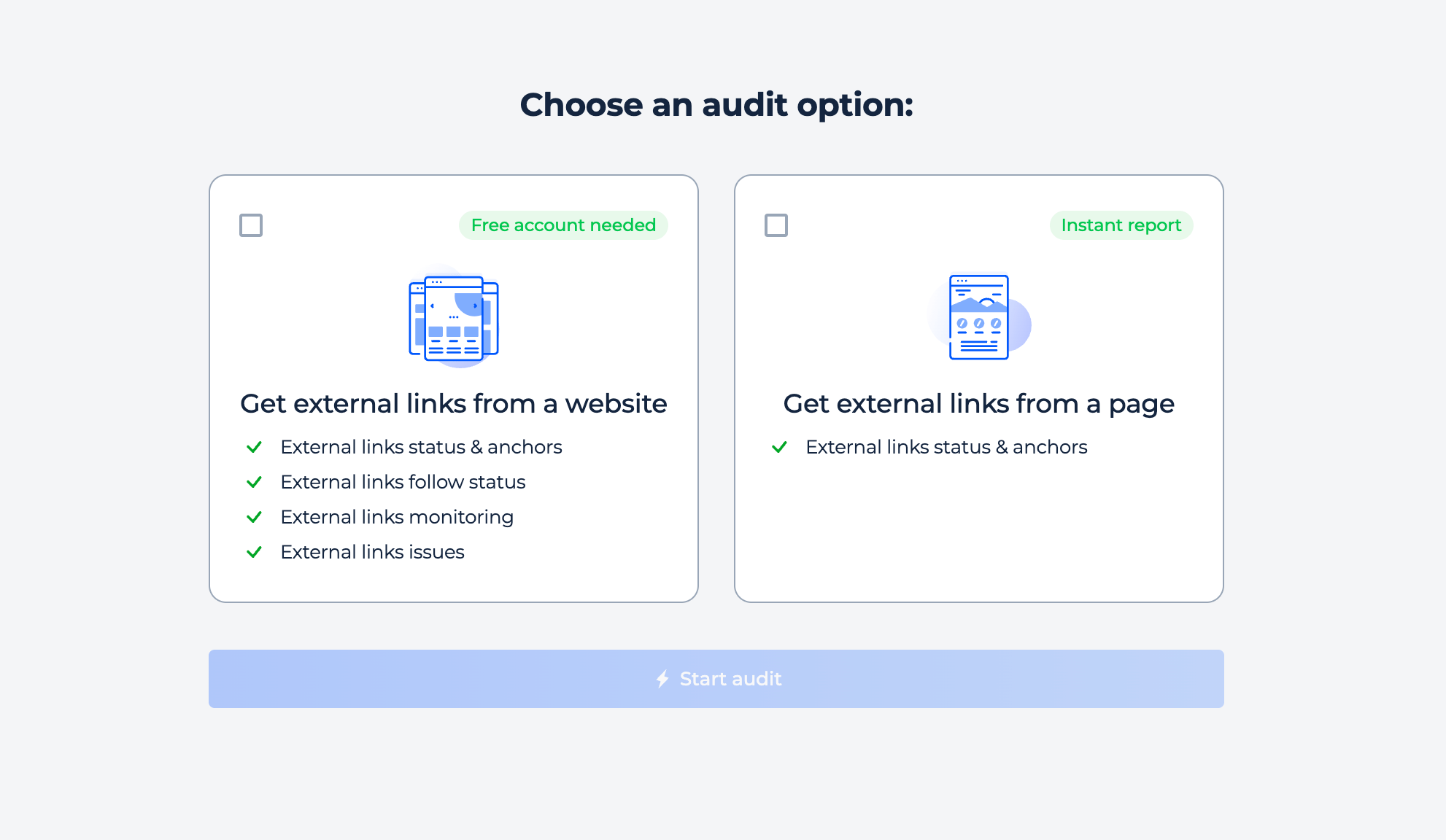
Domain Check
Step 1: Select the domain option, input the domain you wish to examine, and click the “Check external links” button
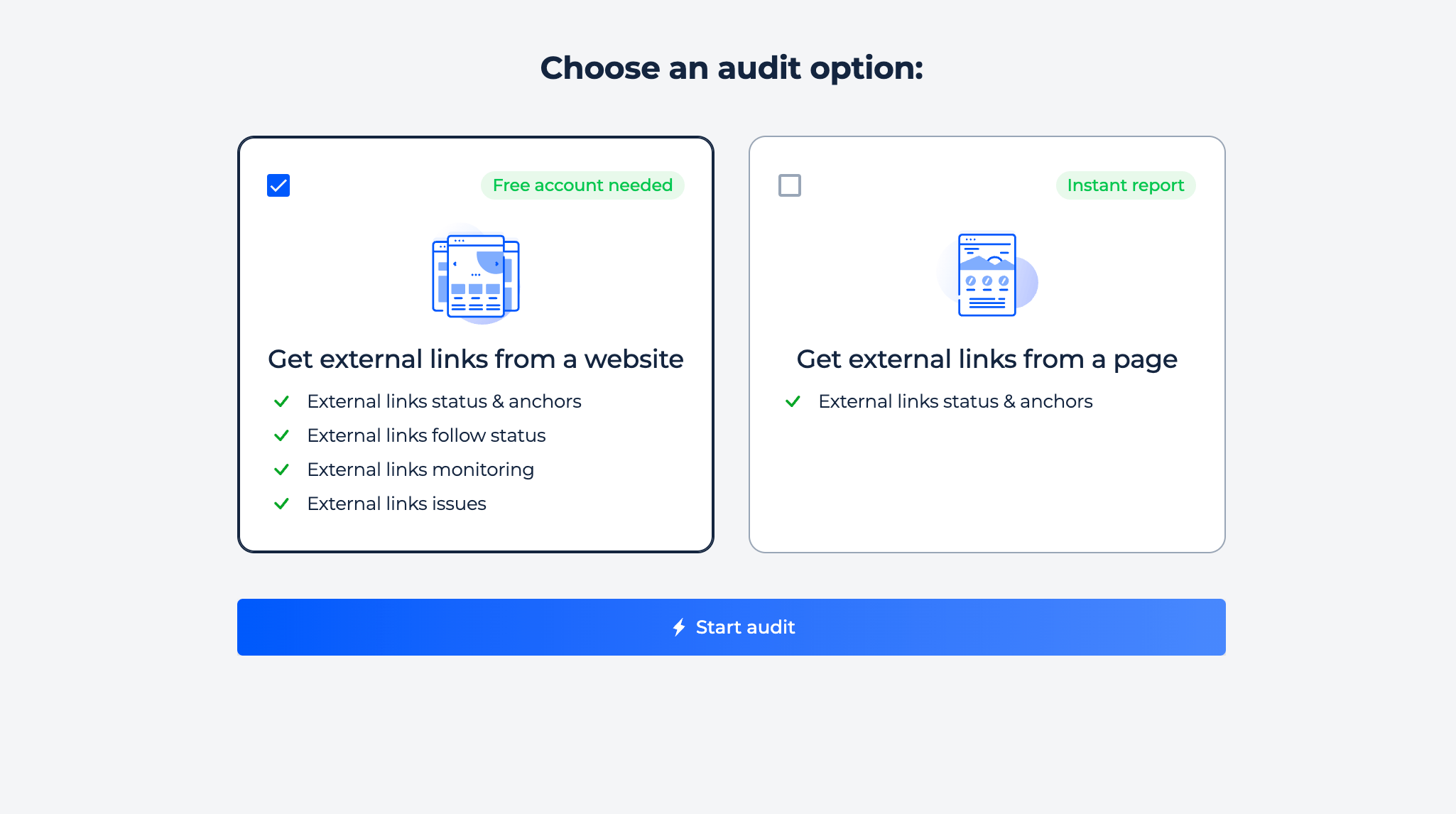
Step 2: Get the website’s external link checker result
A free full-site audit is included when you scan a domain. Our crawler discovers issues with external URLs, such as status code problems, among other things. It will help you fix the whole site’s external hyperlink problem and determine whether any new issues occurred.
Find the list of URLs with that problem by clicking on the issue. There is a button to show the internal connection for broken pages and how-to fixing tips.
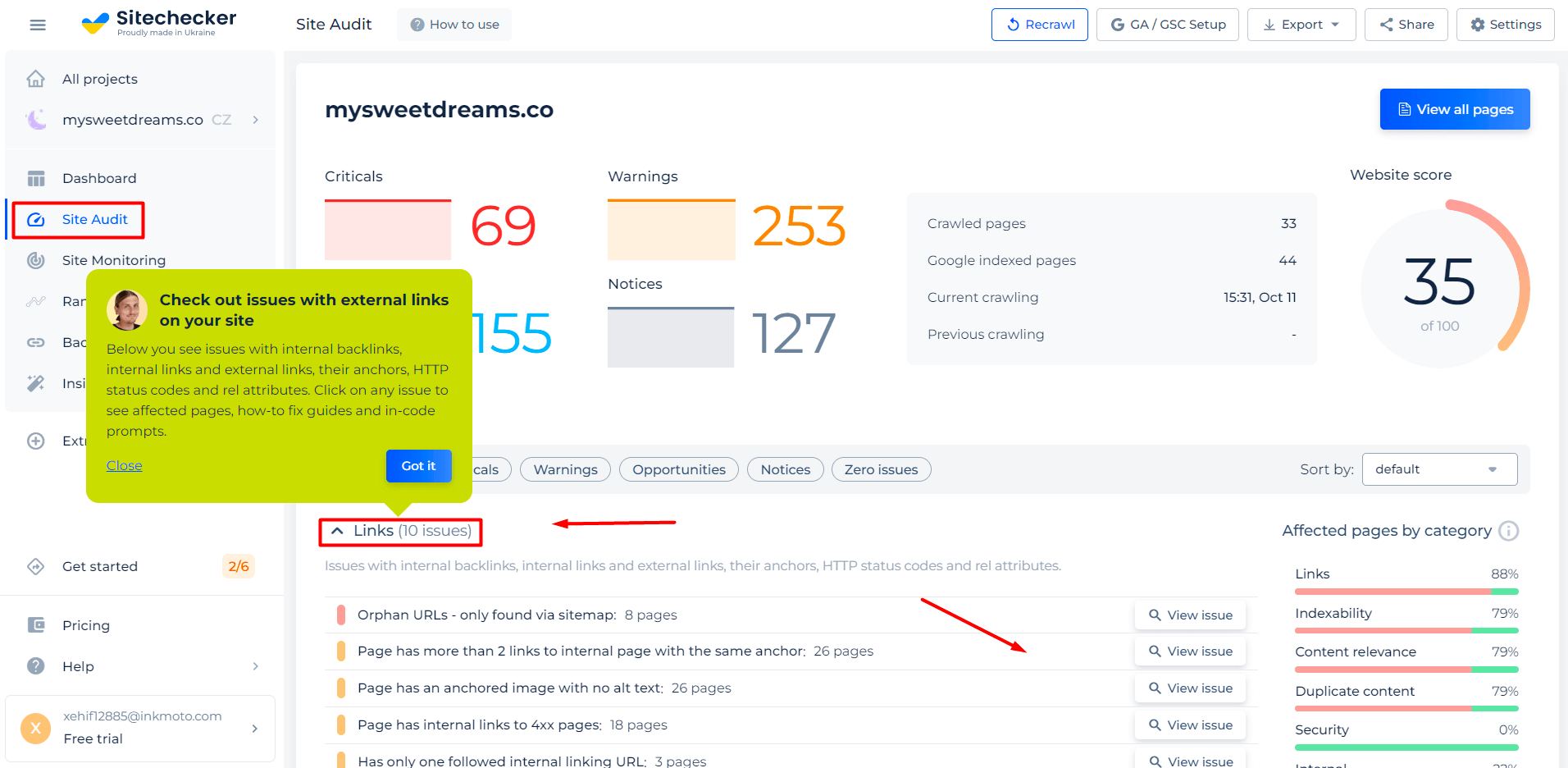
The tool showcases an ‘External Links’ feature designed to get get links from a website. It provides a list of URLs that the site pages link to externally, with each URL’s associated number of pages. There’s functionality to filter URLs and manage display columns, enhancing user control over the data. The right panel categorizes issues by type and priority, with a dedicated ‘External Links’ section. This feature aids in identifying and managing the site’s strategy for SEO purposes, ensuring URLs contribute positively to the site’s online authority and relevance.
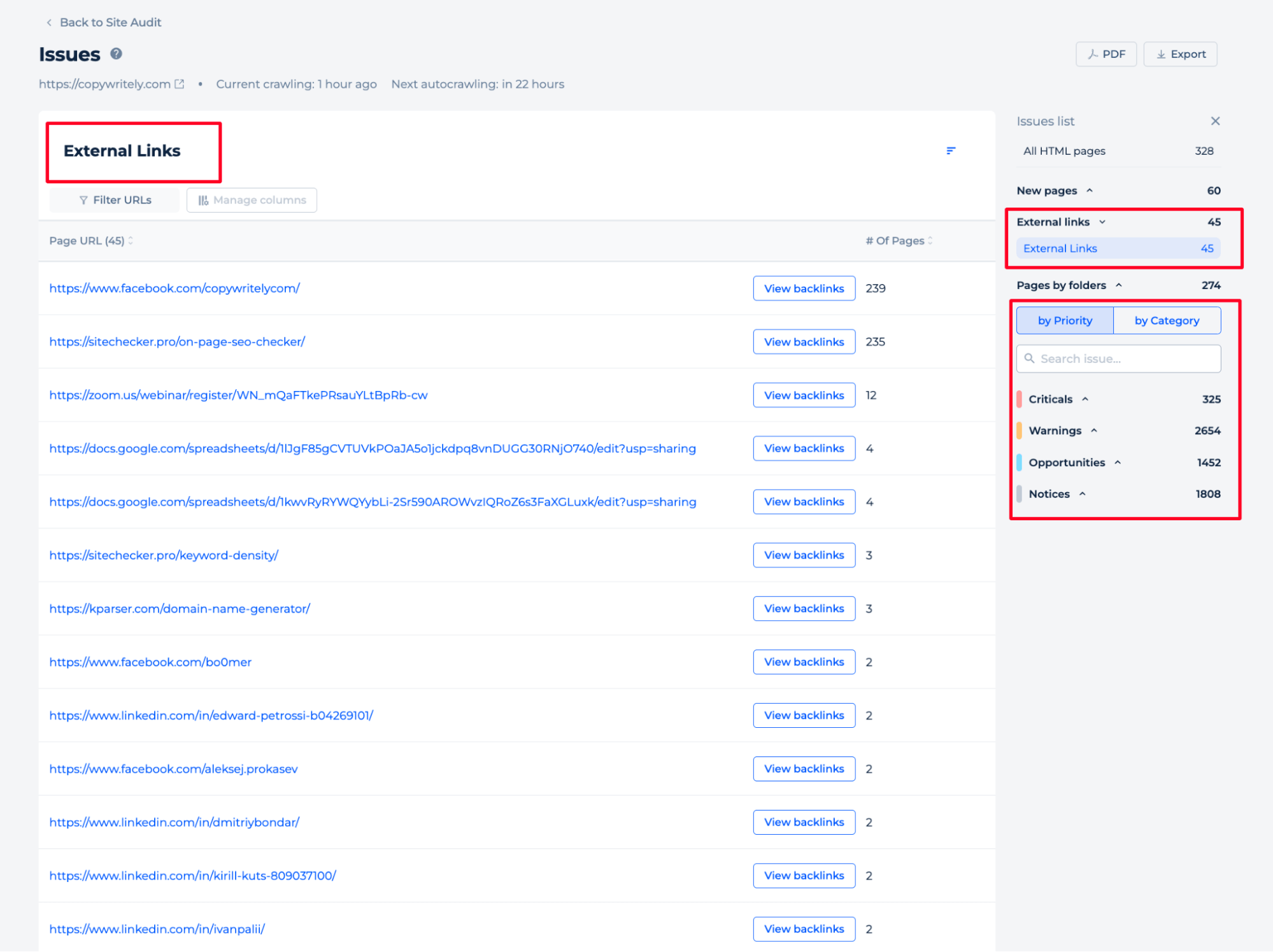
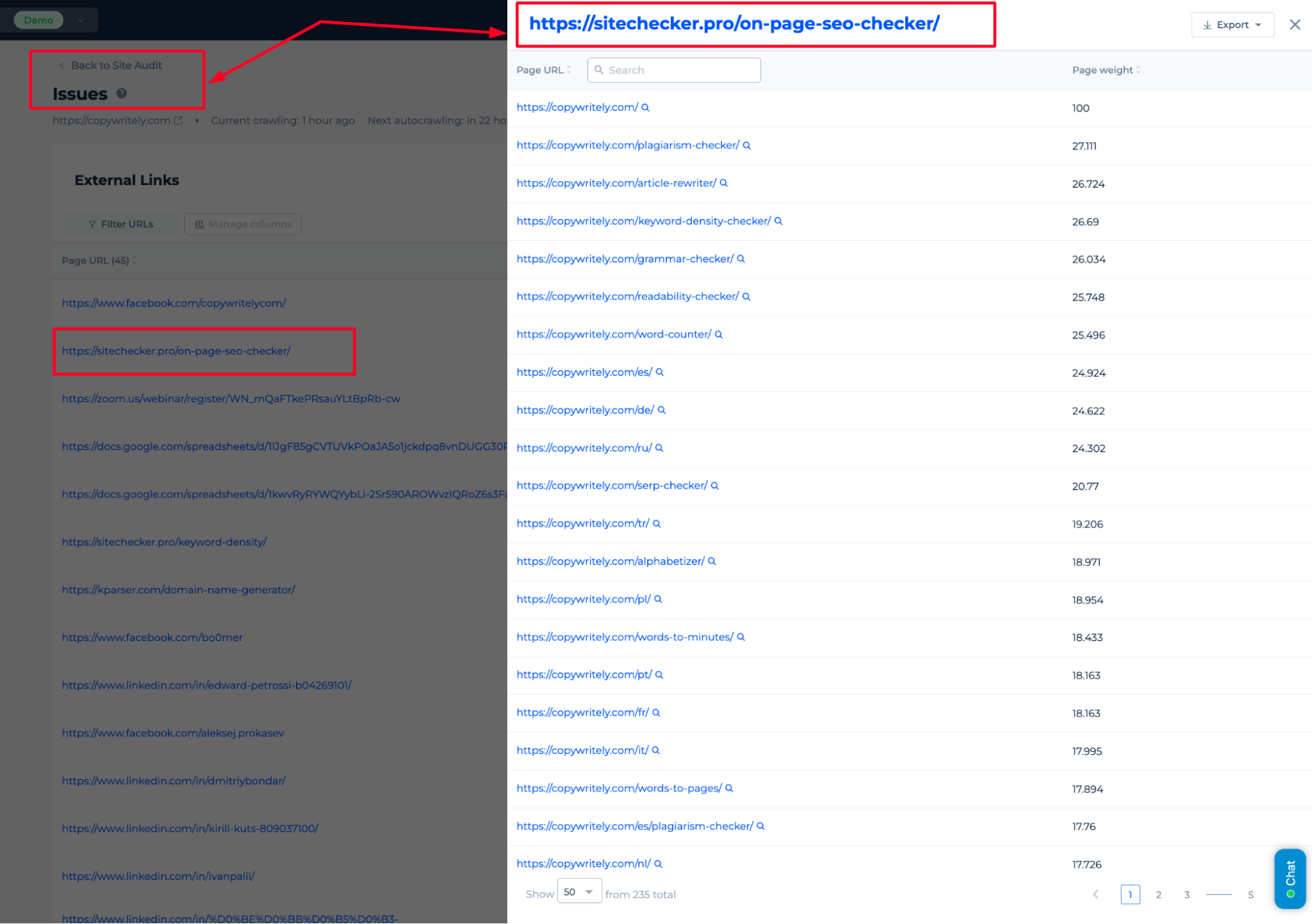
The domain/website external link scanner also has the following features
On the site audit summary page, you’ll find an overview of external and internal link problems. You may filter issues by categories, such as Critical problems, Warnings, Opportunities, and Notices. Alternatively, you can look at them based on topic type – for example, Indexability, Security, Page speed, etc.
It makes concentrating on the problems most important to your website’s success much easier.
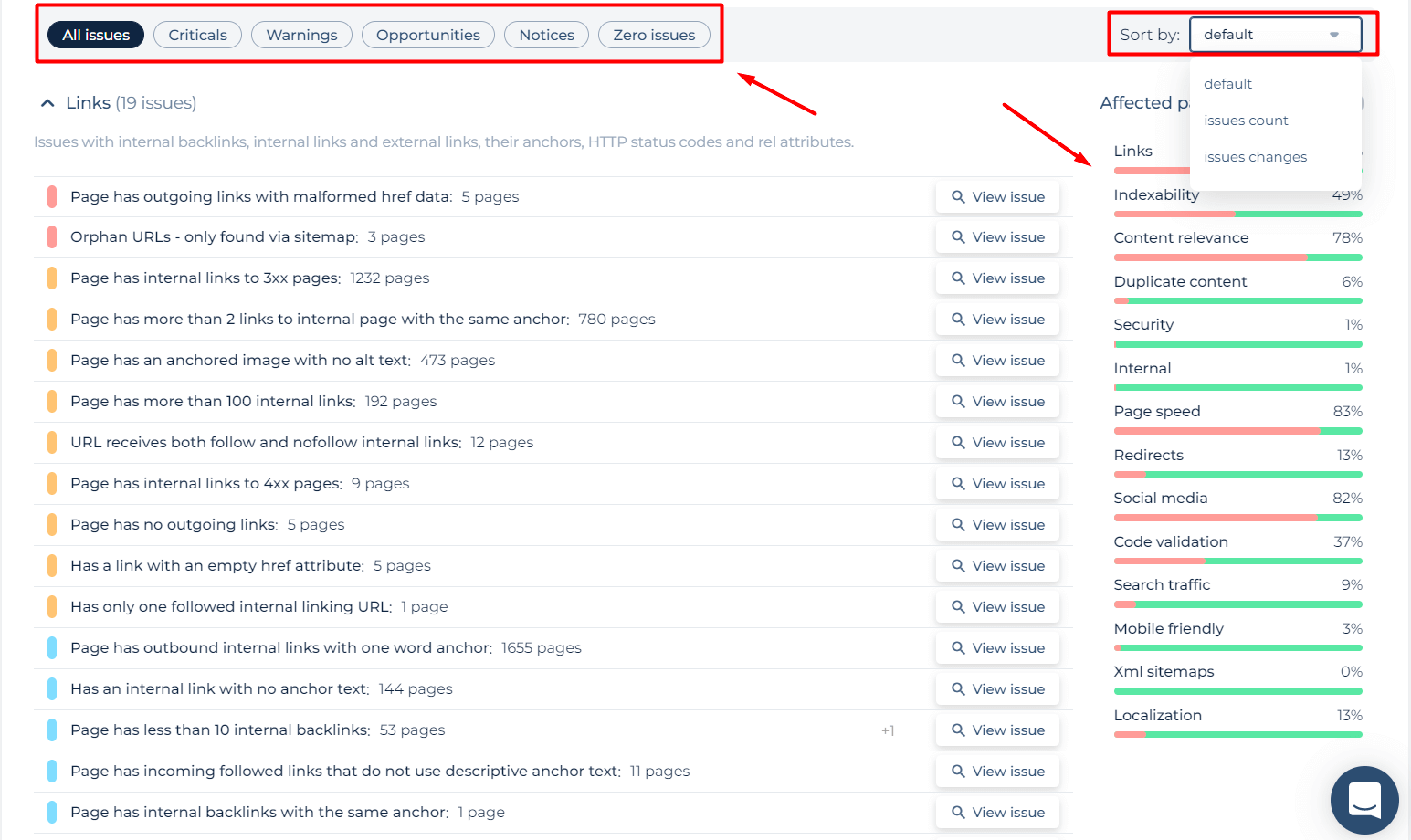
Page Check
Step 1: Select the URL option, input the URL you wish to examine, and click the “Check external links” button.
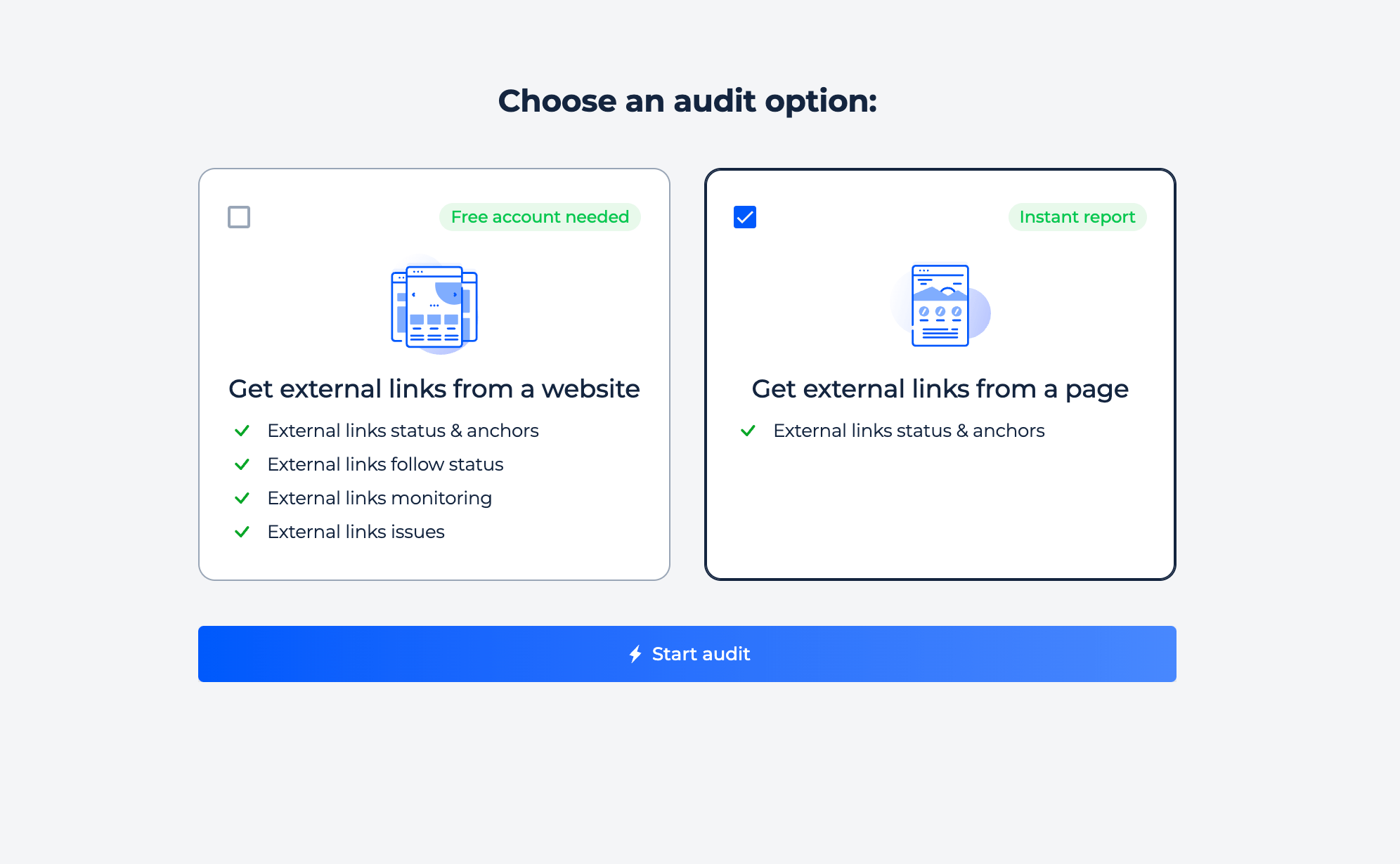
Step 2: Get the result
A section labeled “Links,” focusing on “External links,” lists outbound links found on the page. For each listed external URL, it provides the address, the anchor text used, and the HTTP status code to indicate the response from the server.
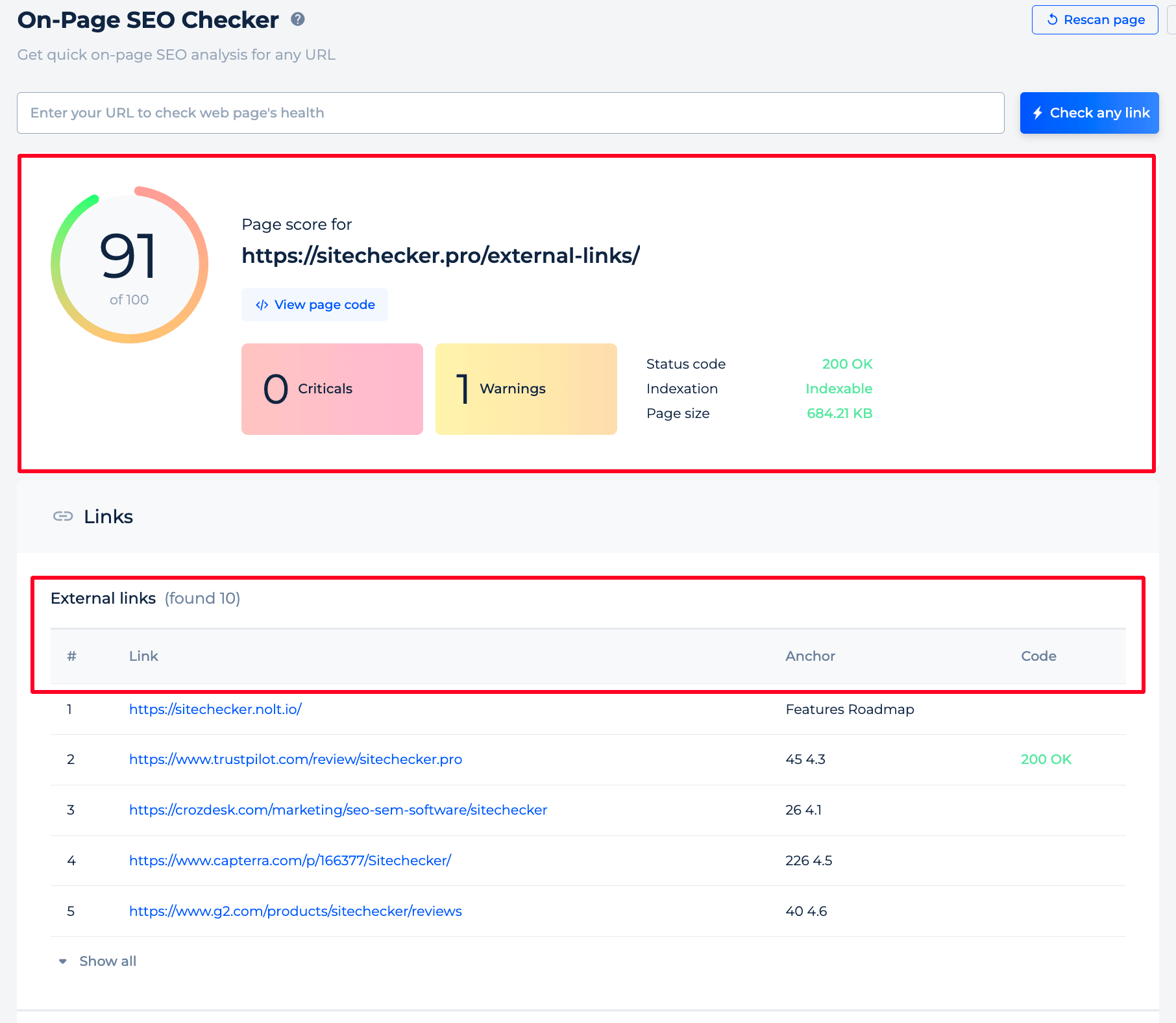
Similarly, the “Links” section would also have categories for “Internal links” and “Subdomain links.” They also list URLs that provide the address, the anchor text used, and the HTTP status code.
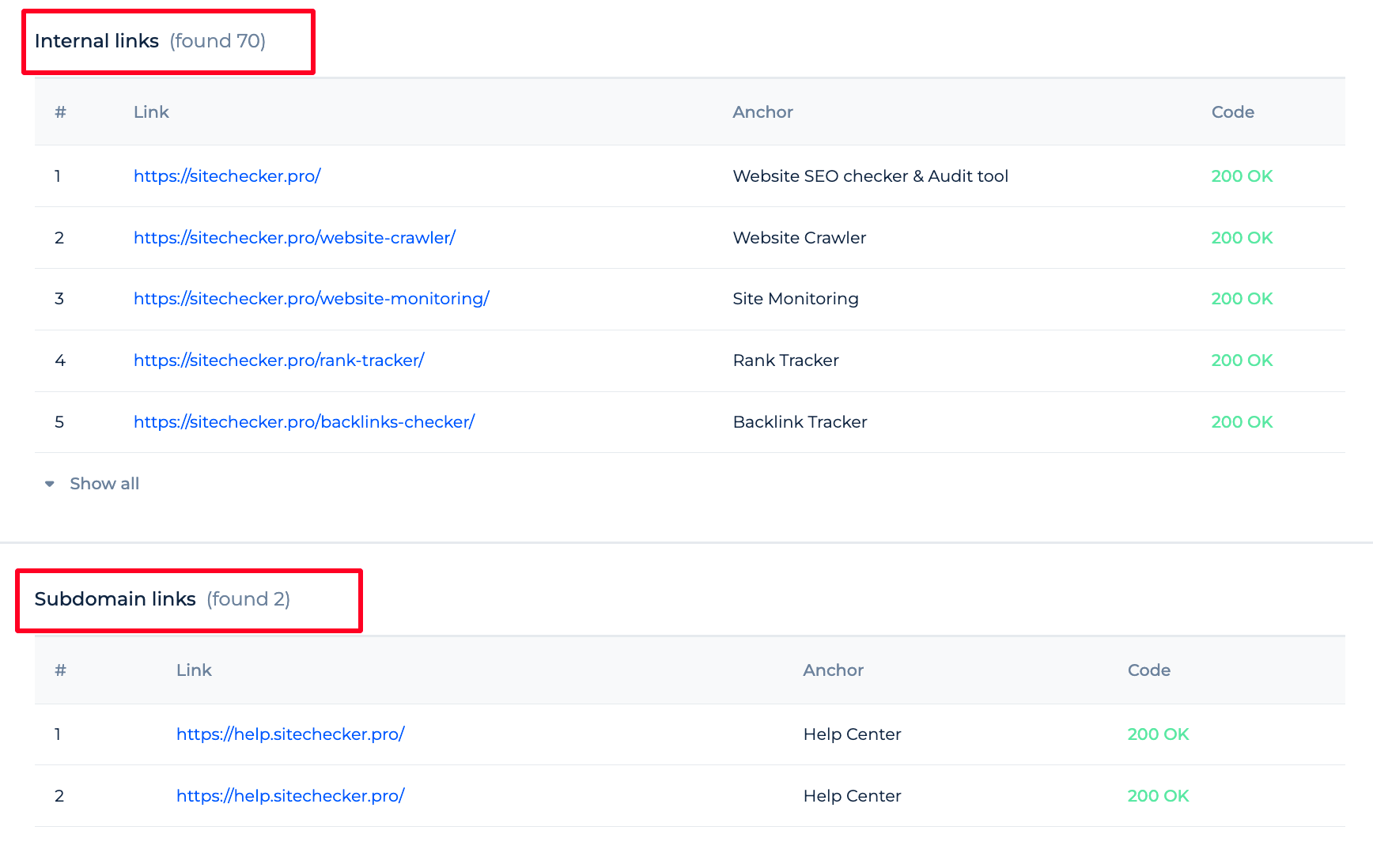
To gain a complete understanding of the tool’s functionality beyond the outbound links on a single page, please consult the domain confirmation screens found in the initial section of the guide following a domain scan.
Or simply click on ‘Site audit’ to explore the tool’s features.
You can explore the tool’s capabilities and envision how it might function for your website.
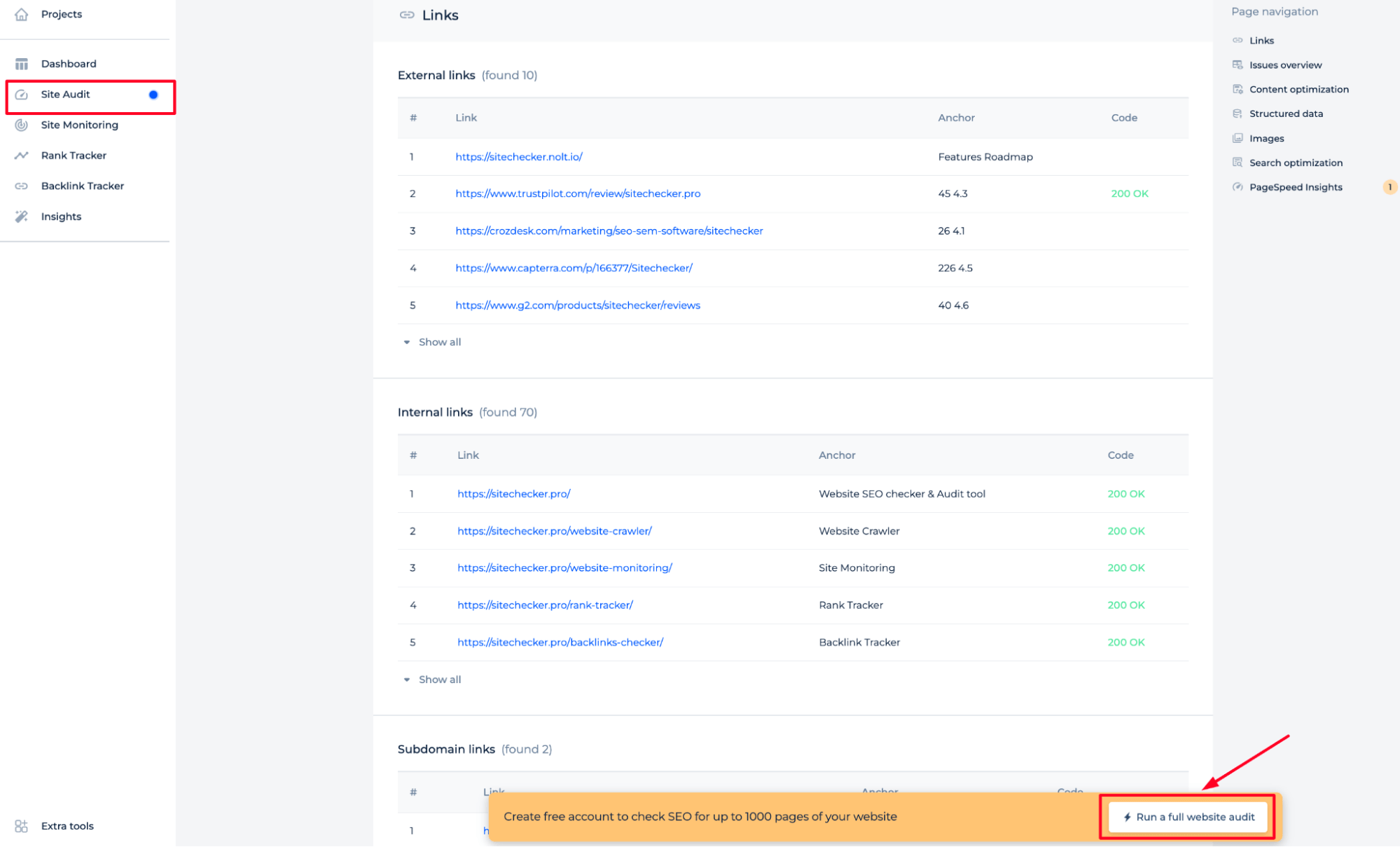
Additional Features of the Tool
The External Hyperlink Tester boosts SEO by improving content quality, ensuring structured data is search engine-friendly, optimizing images for the web, offering search performance insights, and analyzing loading speeds for better user experience and search rankings.
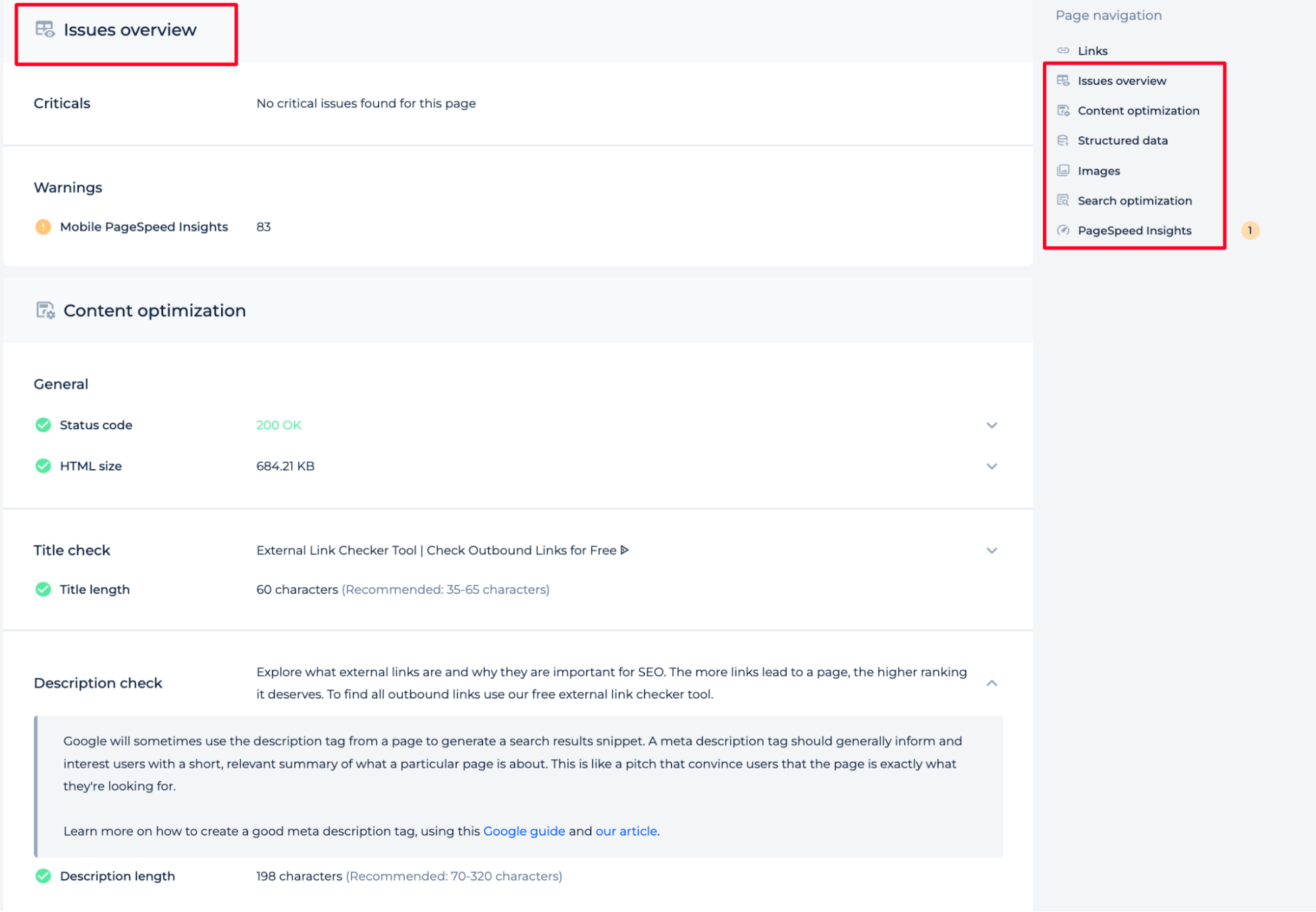
Concluding Remarks
The outbound external URL checker is a professionally designed tool that helps find outbound links and track them for specific pages on your website. Key features include collecting extensive data for each URL, identifying errors, and providing round-the-clock monitoring. This tool helps strike a balance in Page Rank, check, and keep outgoing references relevant and authoritative. The SEO checker offers both domain and page checks, providing users with detailed results and suggestions for improvement.











